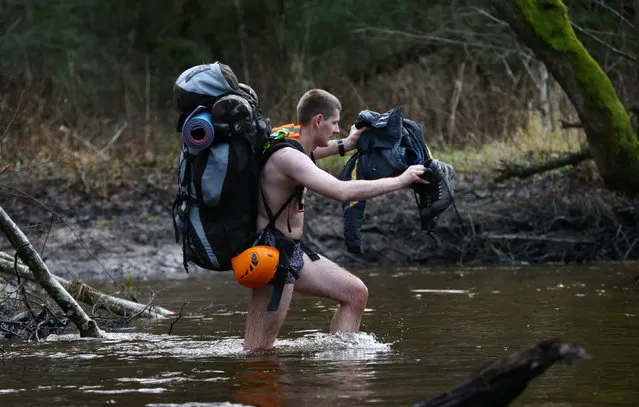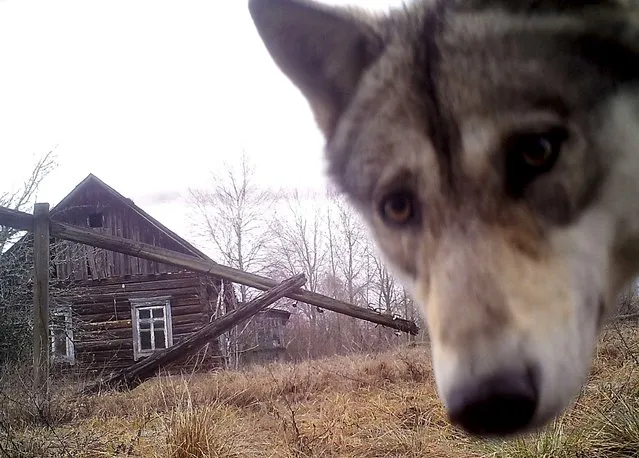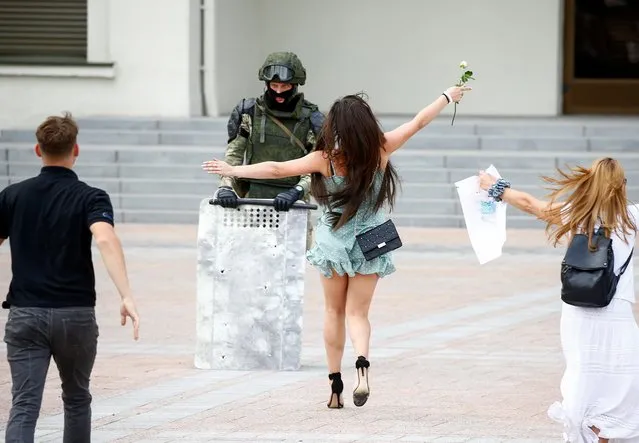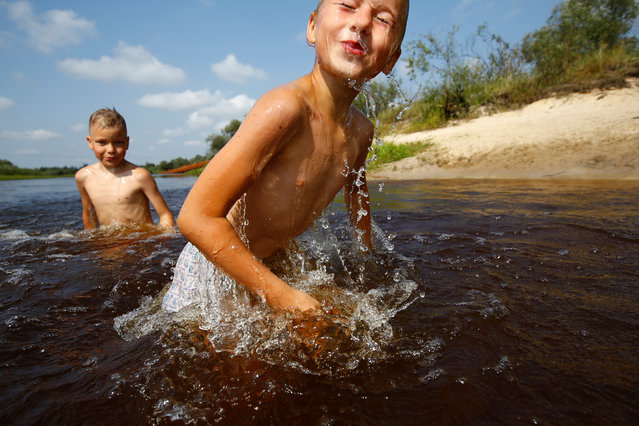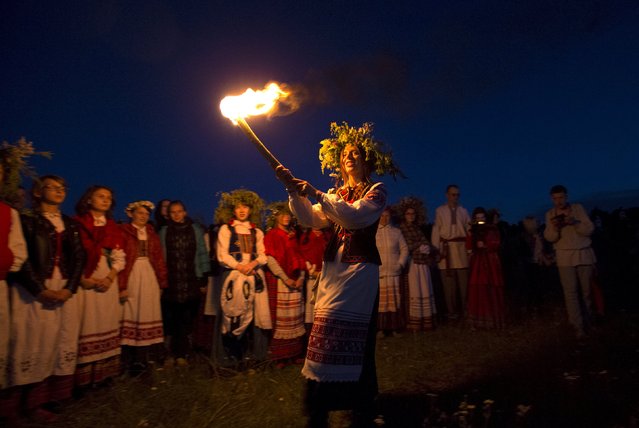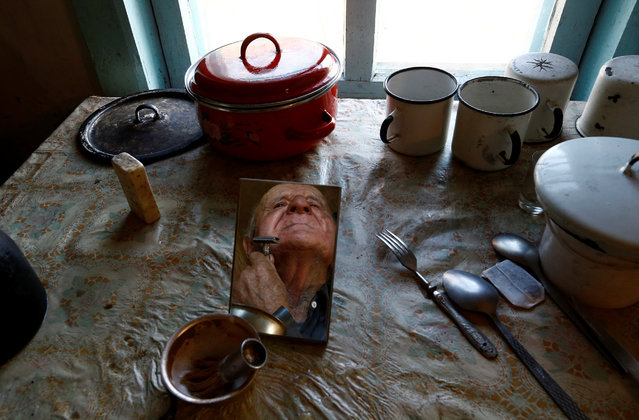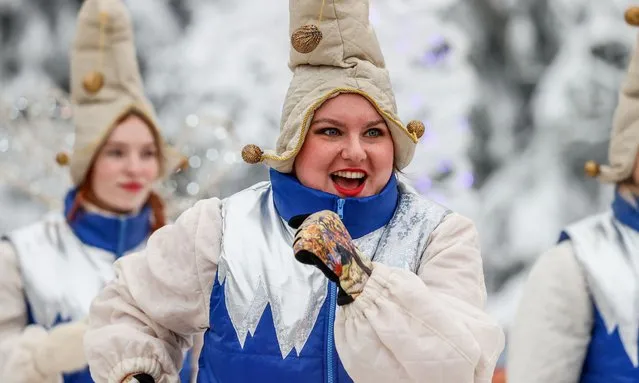
Performers are seen as a 90-year old spruce tree cut down in the woods of the Shchyolkovsky District in Moscow Region, Russia on December 16, 2021 is sent to Moscow. The almost 28-metre high tree will be put up at the Moscow Kremlin's Sobornaya (Cathedral) Square this New Year and Christmas. (Photo by Vasily Fedosenko/TASS)
17 Dec 2021 10:27:00,post received
0 comments

